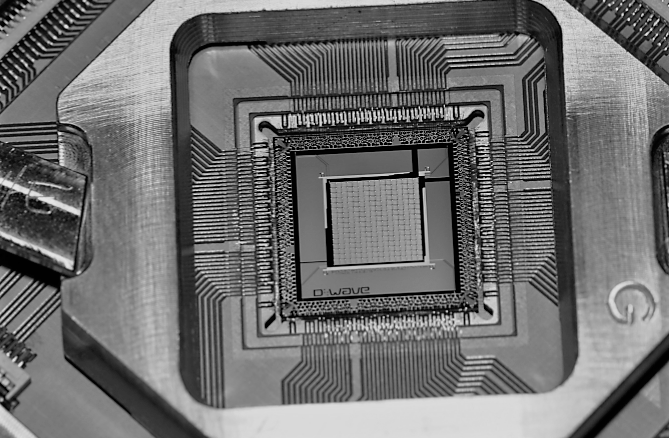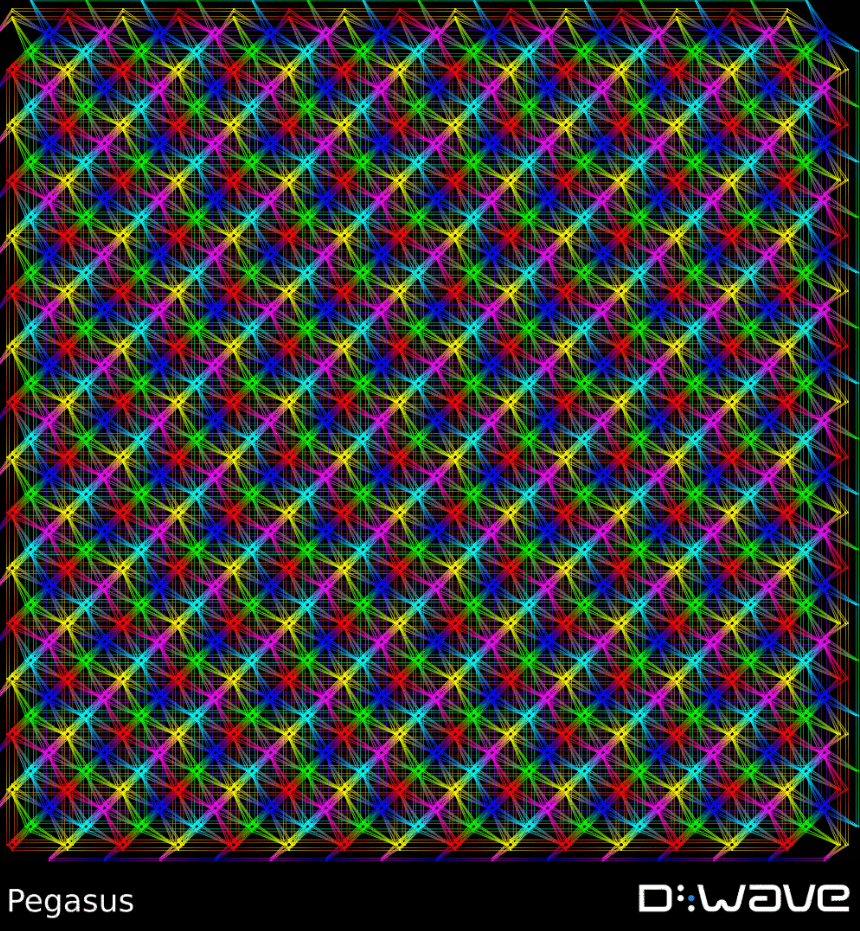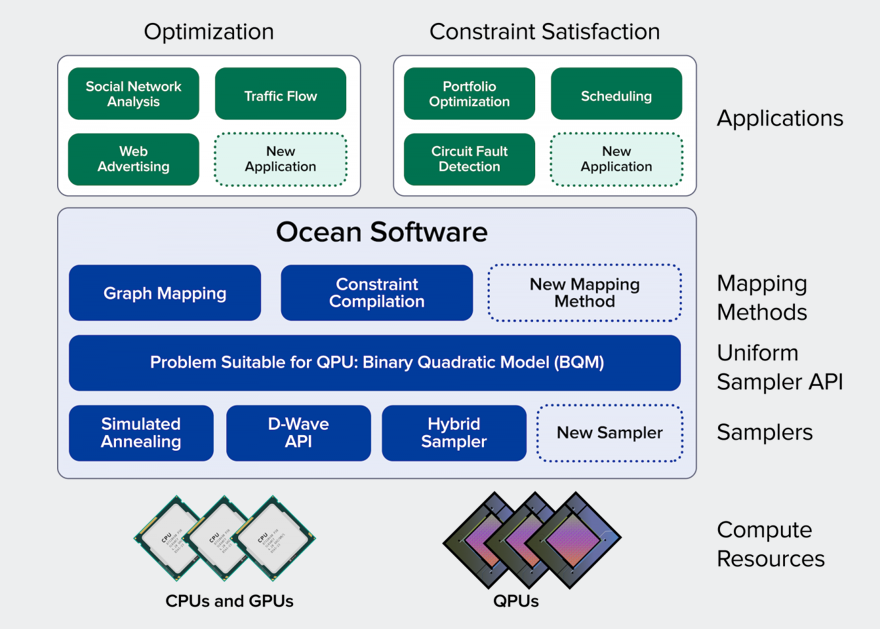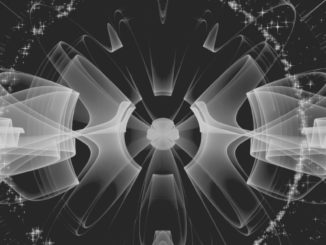
D-Wave Systems is getting ready to roll out its next quantum annealing computer, a system that will encompass more than 5,000 low-noise qubits, as well as a new topology to connect them. These refinements, the company says, will enable it to solve bigger, more complex problems than are possible in its current 2000Q system and broadens the commercial use of quantum annealing. If all goes as planned the new system, which the company has named “Advantage,” will be available to customers sometime in the middle of next year.
According to Alan Baratz, D-Wave’s chief product officer and executive vice president of research and development, Advantage’s 5,000+ qubits more than doubles the number in the 2000Q, a system initially released in 2017. “The current 2000Q computer has about 100,000 Josephson junctions,” Baratz tells The Next Platform. “The Advantage will have over 1 million. It will have more than 100 meters of wiring and the chip will be four times larger than the 2000Q.”
Just as significant, the upcoming quantum annealing chip will replace the 2000Q’s Chimera topology with the new Pegasus topology. While Chimera linked each qubit to six other qubits, in Pegasus each qubit will connect to 15 others. As a result, connectivity will be increased by a factor of two and half, which means larger problems can be tackled using fewer numbers of qubits.
“These developments mean it will be the most connected quantum computer in the world,” claims Baratz, “and for users that enables embedding of much larger, much more complex problems.”
The new Advantage system will also incorporate D-Wave’s low-noise fabrication technology that was developed for the most recent 2000Q quantum processor. According to the company, the reduction in noise resulted in a 7.4X increase in rate of tunneling. Without getting too deep into the quantum details, the general idea behind noise reduction is to improve qubit coherence times, thus enabling better application performance.
“The results confirm a positive correlation between reduced noise and improved performance, with at least a 25X speedup in solving spin glass problems having been observed,” says Baratz. “This is the first time we are able to clearly demonstrate the impact noise has on quantum effects and performance in quantum annealing systems.”
Along with the new hardware, D-Wave will supply an updated software stack, including its Ocean software development kit. The SDK is designed to make it easier for Python developers to devise code, without a needing a deep knowledge of quantum mechanics or the underlying hardware. Also of note is D-Wave’s “Hybrid” framework, a set of software libraries and tools that enables developers to build application modules that can split tasks between classical and quantum computing environments. Along with the assorted libraries and tools, D-Wave also includes a number of hybrid workflow examples that developers can draw on.
When Advantage becomes available in mid-2020, user will be able to access it immediately via the company’s Leap quantum computing cloud platform, a service D-Wave introduced in 2018. Current customers are using Leap to access both the original 2000Q chip and the low-noise variant. As we reported last year, the introduction of Leap puts D-Wave on the same footing as companies like IBM and Rigetti, both of whom have cloud services for their universal gate quantum systems. And since the cost and low-temperature operating eccentricities of these quantum computing machines rules out on-premise systems in most cases, the majority of users will get access to Advantage through this Leap service.
One exception to this is Los Alamos National Laboratory (LANL), who will be upgrading its in-house 2000Q machine to an Advantage system. As a long-time customer, LANL has purchased the last two generations of D-Wave systems to conduct application research in the quantum computing field. To date, the lab and its collaborators have developed more than 60 quantum computing applications.
D-Wave says customers have developed more than 150 applications across a wide range of commercial and scientific domains, including airline scheduling, election modeling, quantum chemistry, automotive design, preventative healthcare, logistics, and financial asset management, among others.
Clearly, D-Wave is hoping to expand its commercial reach with the more powerful Advantage system next year. As Baratz, puts it, the value of quantum computing’s lies in the applications customers are using it for, adding: “Every decision we’ve made and every decision we’ll make will reflect an ongoing commitment to helping developers learn quantum systems and helping customers build the first commercial quantum killer applications.”







Be the first to comment